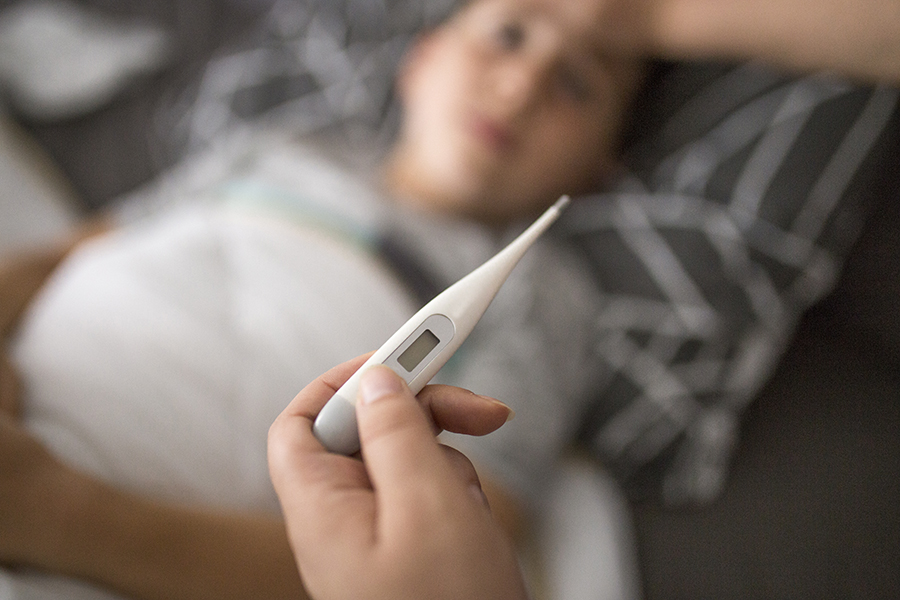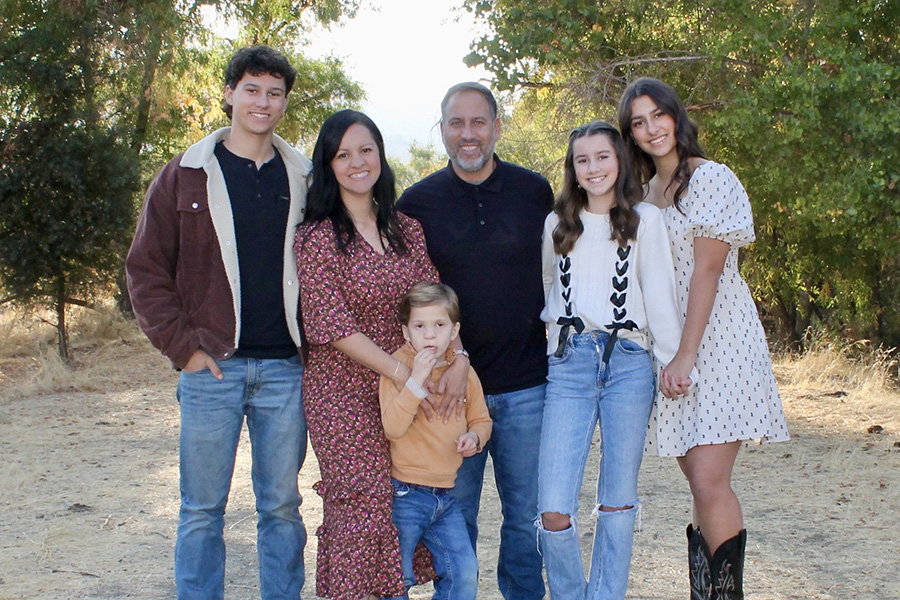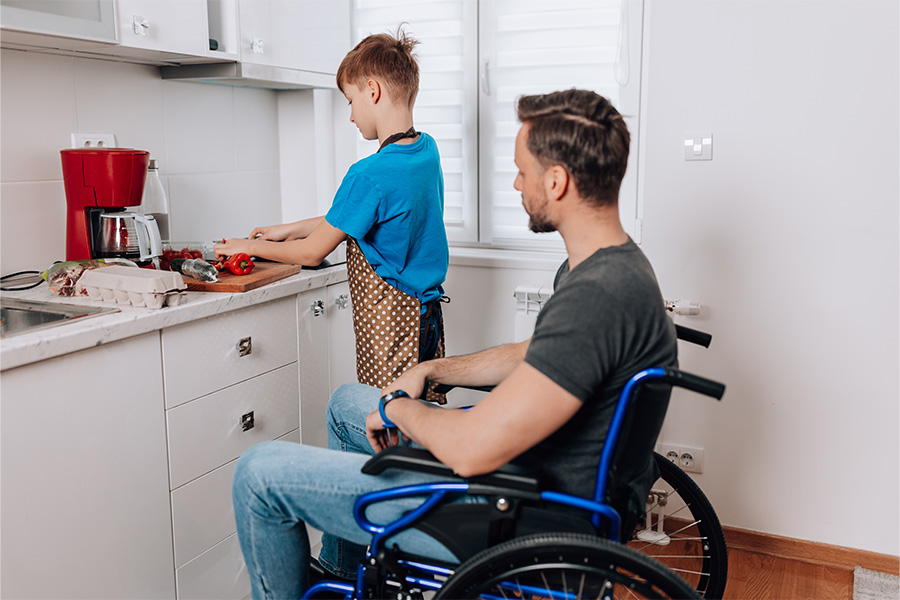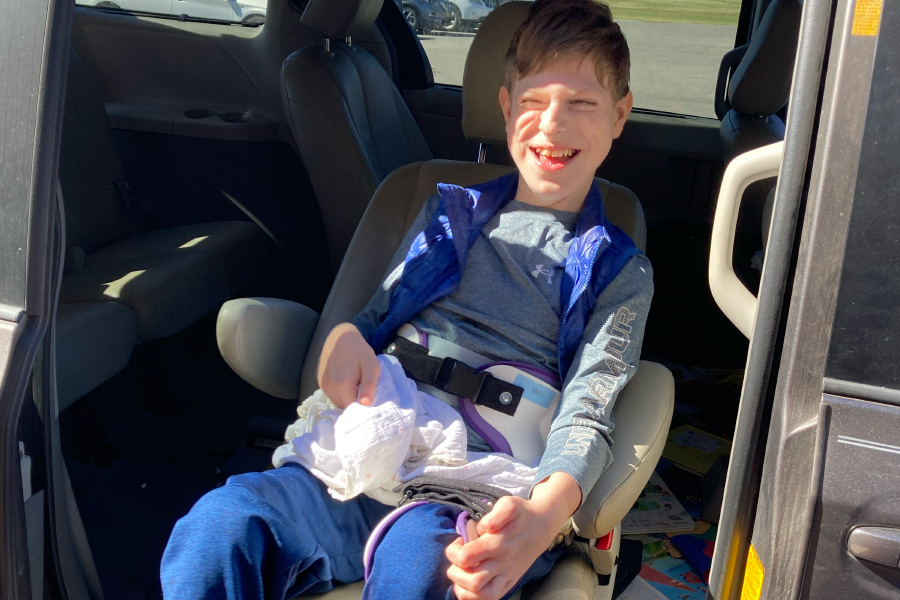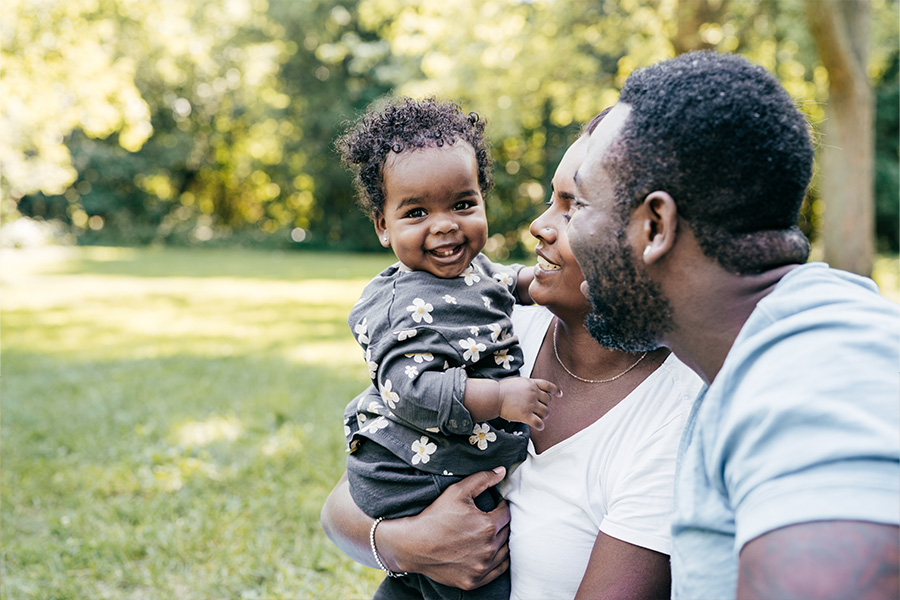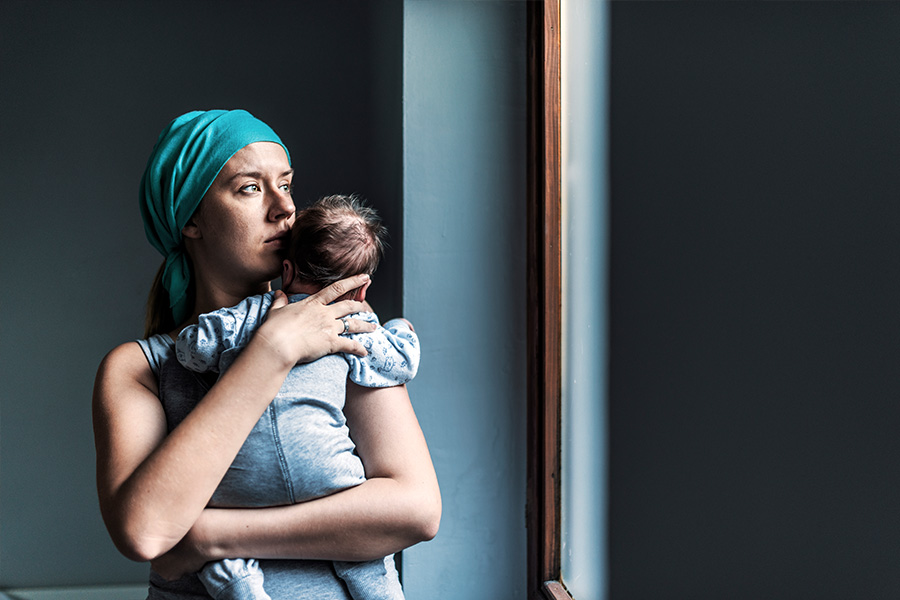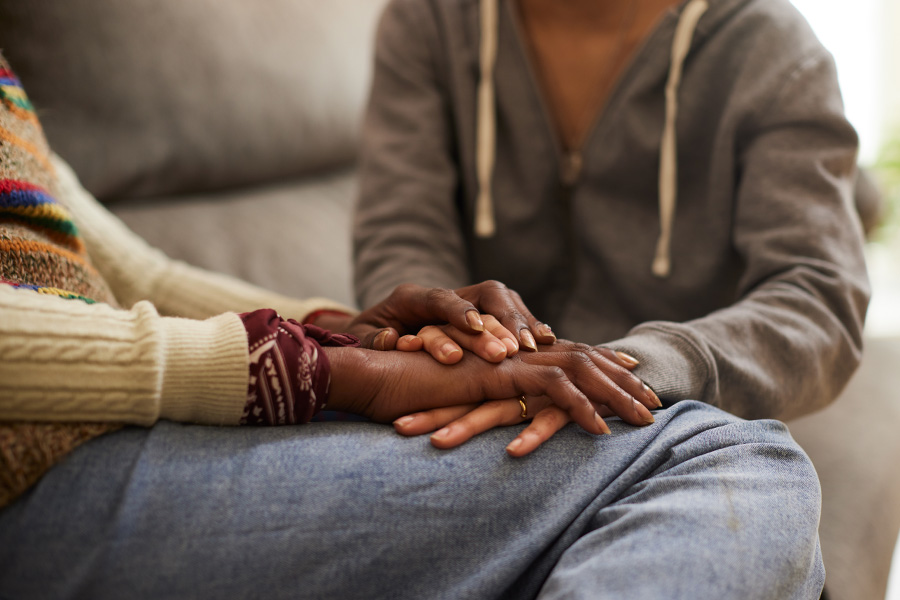It happened around 2 p.m. I received a text from my son’s special education teacher. Charlie had just gone on his very first field trip as a kindergartner. It’s the standard fall trip: a tour of a farm and pumpkin patch. There were horses and cows and turkeys, which is great. But there were also cloudy skies, gravel and dirt roads, or roads that were mostly weeds and flattened corn stalks—all the things that turn normal navigating in his wheelchair into an obstacle course. I pictured him stuck in a rut in the corn maze. And so I texted his teacher. I made myself wait until the field trip was over so that he and she could focus on what all the other kids were focusing on: learning about agriculture and the difference between a fruit and a vegetable and what, to a six-year-old, makes the perfect pumpkin.
Her text to me was a deep relief, “He did great! Loved the pumpkins, but not the turkeys,” and then she sent two pictures: one of her hugging him and then one of a truly terrifying turkey.
I let out a breath. And then I saw those three little dots. She was still typing…
“He’s pretty tired this afternoon though and his nose is running and he’s coughing.”
Thirty seconds of celebration over the field trip and I was back to worrying. Because Charlie can’t tell me exactly what hurts and where, his sicknesses are always a Sherlock Holmes puzzle, but less quippy. Sniffles and your average snot are okay. Green snot and yellow snot and congestion in his eyes is not. Coughing is okay, but wet coughing he can’t fully clear is not. The common cold brought on by allergies is okay, but the fever-wracking, full-body wrecking sickness is not.
And with Charlie, who has cerebral palsy, you just never know.
He had febrile seizures as a baby. Seizures bought on by those sudden fevers that sometimes did not stop. We have ridden in the ambulance many times. The firemen and EMTs were our friends. The nurses in the PICU knew us on sight and my body automatically steered itself to the coffee station on the floor that had the best snacks in the third drawer.
I’d rather not know these things.
And because it’s been three years since his last seizure and we went off the medications a year ago, I don’t know who’s on call or how he will feel in my arms at forty pounds when he starts to shake.
I do not want to know these things.
And so when he gets home from school after the field trip, I change him immediately into pajamas and cuddle him on the couch. I keep nudging water on him so he’ll stay hydrated. And I brush that spot at the back of his neck with my lips where he always feels feverish first.
It’s a rainy afternoon and we stick close to home. I feed him his favorite foods for dinner—yogurt and macaroni and cheese. A boat load of animal crackers for dessert. It’s a good sign, to see him eat so well. He doesn’t eat at all if it’s really bad. The snot stays clear. The cough is wet, but he gets it up and out. No fever, yet. He’s had his flu shot.
I tell myself all these things to keep calm. I also say it as practice. I am practicing for a normal life, a life where every cold does not land us in the hospital. I want to be prepared for the worst, but hopeful for the best. It’s a tricky balance to strike. It’s practicality meets optimism. It’s a long memory that doesn’t cloud the future.
It’s going to be a sleepless night, but that’s alright. I see it as a preventive measure against endless hospital stays. Not that you can prevent these things. Sometimes you get a cold. Sometimes brain waves look like choppy seas and there’s nothing you can do about it. But in the long dark hours before sunrise, hope is more important than reason.






